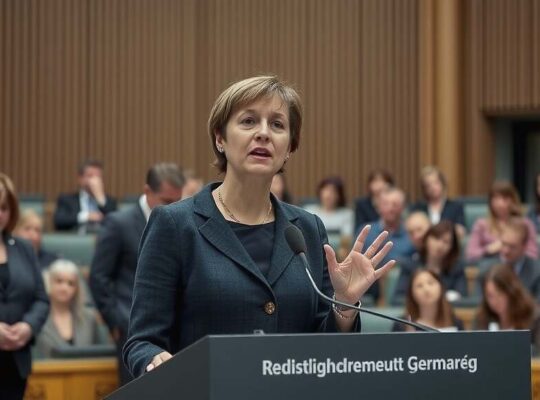The debate surrounding Germany’s pension system is intensifying as policymakers prepare for cabinet decisions on Wednesday. Philipp Türmer, chairman of the Social Democratic Party’s youth wing (Jusos), is advocating for a more equitable distribution within the system. He argues for increased wages and the inclusion of all professional groups – encompassing civil servants, members of parliament and the self-employed – within the statutory pension scheme. Türmer emphasized the current precariousness of the situation, noting that the average pension currently sits only marginally above the poverty line.
His call for redistribution also includes the integration of high capital gains into the funding of retirement security. The need to address what he sees as systemic imbalances has spurred a wider discussion on how to secure the future of the pension system.
Jette Nietzard, spokesperson for the Green Youth, echoed the call for substantial reform, criticizing the perceived reluctance to implement meaningful change. She argues that the current approach risks pitting the interests of older and younger generations against each other. Nietzard posited that the financial burden of demographic shifts should be distributed not solely by age, but also based on wealth and earning capacity. She believes that the so-called “pension gap” can be addressed utilizing the substantial private wealth held within Germany, asserting that sufficient funds are already available.
The cabinet is currently considering proposals to set the pension level at 48 percent of the average income by 2031, alongside an expansion of the “mothers’ pension” program. These proposals are occurring within a broader context of intensifying political discussion regarding the long-term sustainability of Germany’s social security system.












